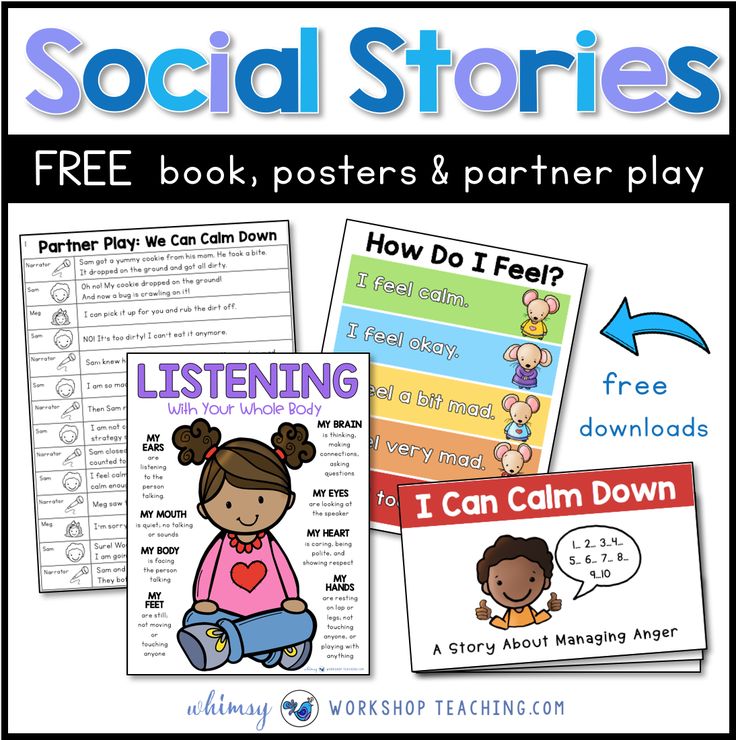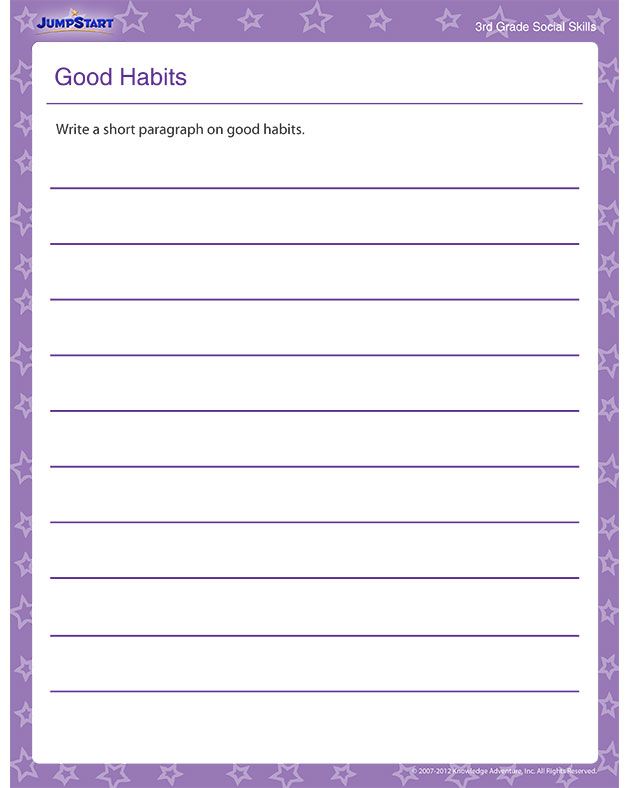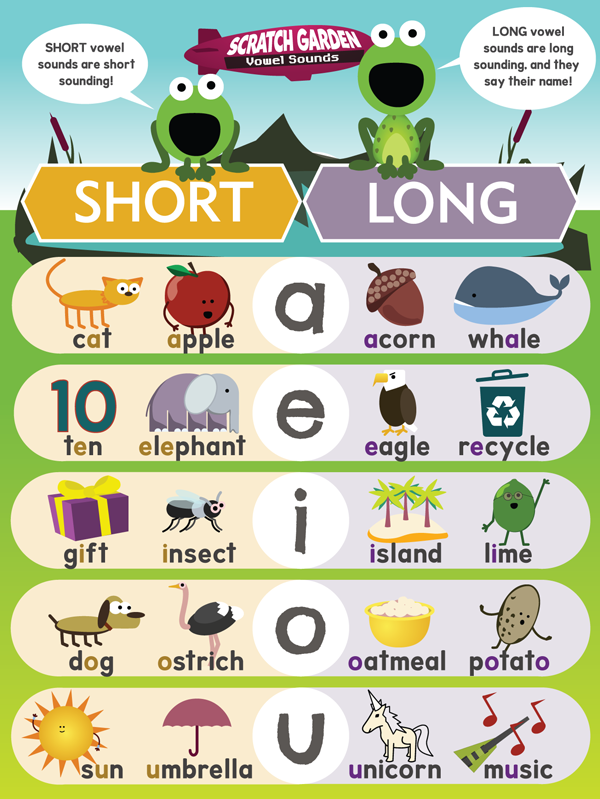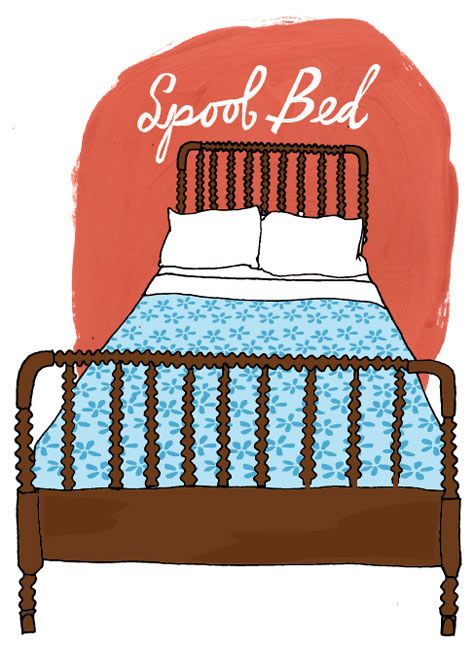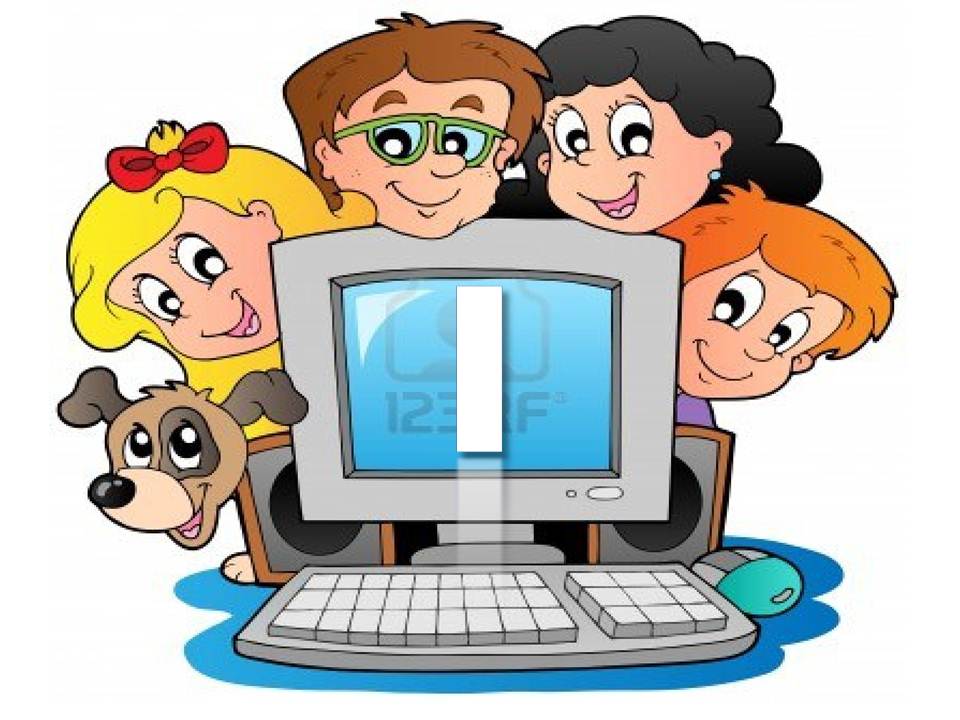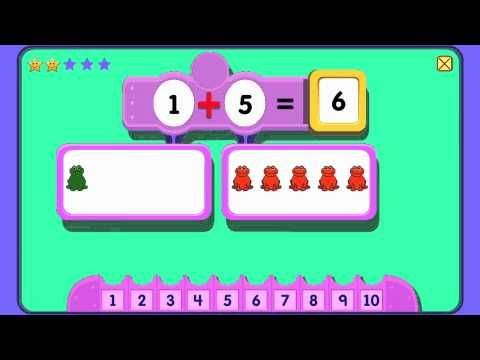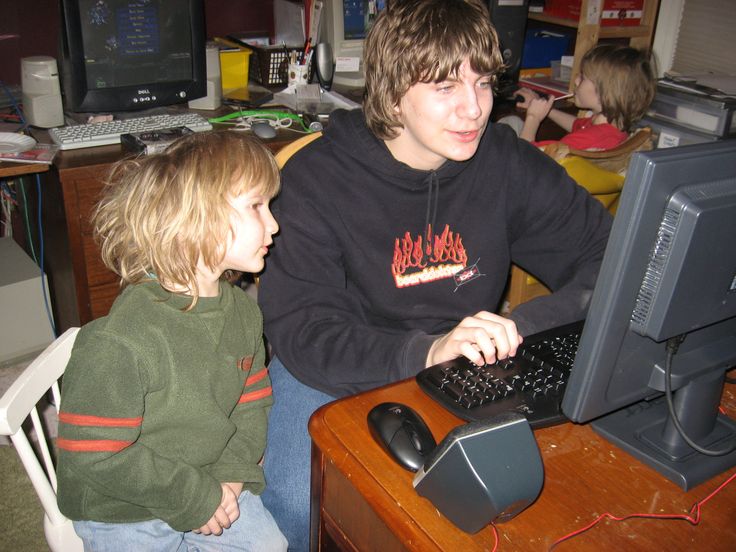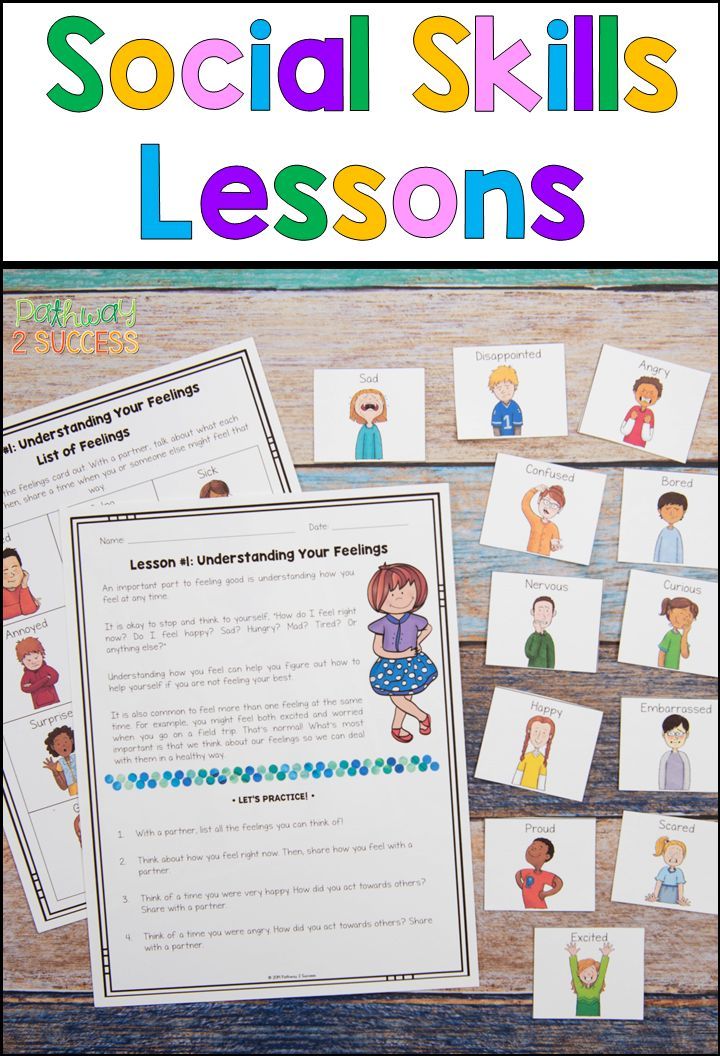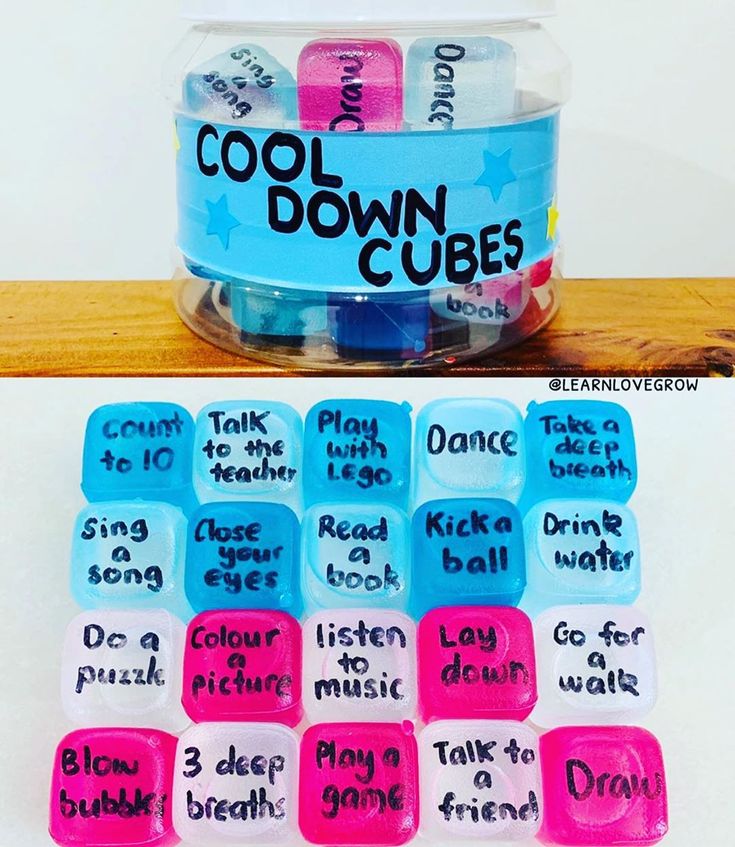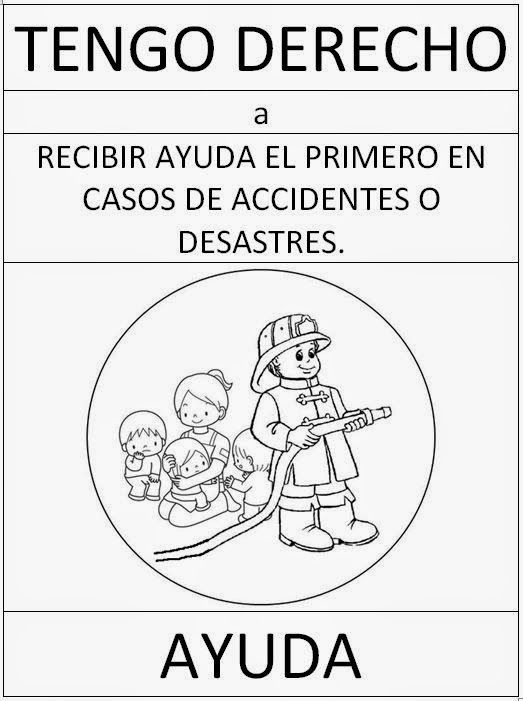Preschool social skills activities
13 Social Skills Activities for Preschoolers + Milestones
- Share
The foundation for a person’s social behaviour is laid during the early years, which makes preschool a crucial time to ensure your children are learning social skills.
In this article I’ll explain briefly:
- why social skills are important
- examples of social skills for preschoolers
- the stages of social development
- social milestones by age
- 13 social skills activities for kids
Developing social skills in preschoolers is vital in order for them to be able to interact with others successfully and form healthy relationships throughout life.
As children grow, they learn about social roles, values and behaviours from the world around them.
Parents, siblings, extended family, peers and teachers all have a role to play in moulding children’s social skills.
Healthy socializing involves three general things – generosity, helpfulness and taking turns.
Generosity
Generosity is about sharing with family as well as friends. Children must also learn to respect others’ rights and possessions.
Helpfulness
Learning to be friendly, considerate and helpful must be balanced with not being overly submissive and stifling the development of their own personalities.
Taking Turns
This is one of the most important skills to learn. It is the basis of courtesy and thoughtfulness and is relevant at almost every level of life.
Children must allow others to have their turn but also have the self-confidence to insist on getting their own turn, without trying to dominate activities and conversations. The example parents set is important.
The social and emotional development of a child is an important aspect of their growth, just as much as intellectual or physical development, which we tend to pay more attention to.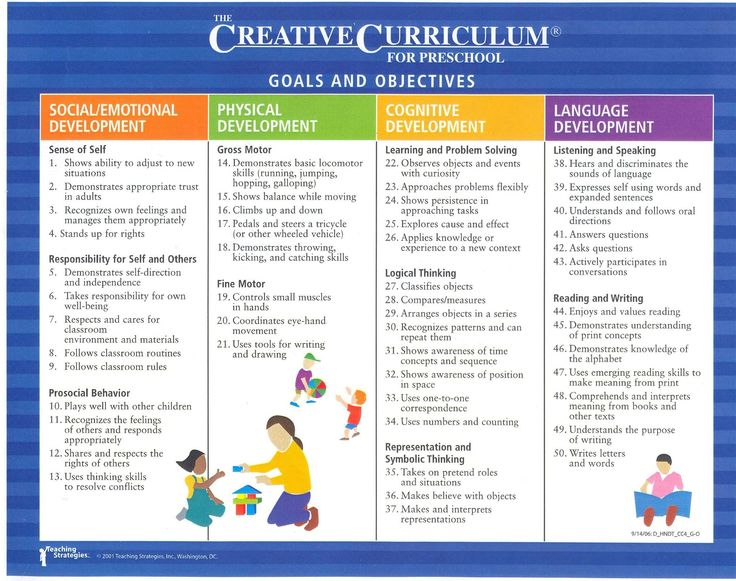
Children need to build a set of prosocial skills in order to navigate communicating with others and building relationships.
Here are some examples of social skills, as shared by Marike de Witt in her book “The Young Child in Context: A psycho-social perspective“.
These social skills, as well as the
- Cooperating
- Being helpful
- Compromising
- Giving
- Sharing
- Taking turns
- Negotiating
- Showing sympathy
- Having empathy
- Imitating
- Protecting
- Assuming responsibility
- Respecting others’ views
- Showing attachment
Antisocial behaviours prevent children from communicating effectively. These are a few examples:
- Selfishness
- Telling lies
- Aggression
- Egocentrism
- Taking others’ possessions
- Bossiness
- Destructiveness
- Prejudice
In order to help children build social skills, it is necessary to first understand the social stages and milestones they will progress through so you can support them at their stage of maturity.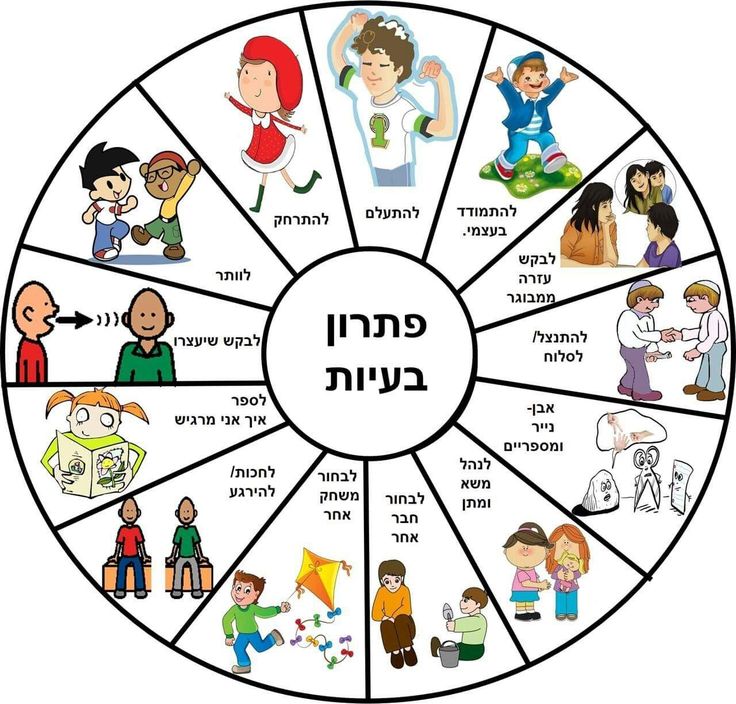
For example, there is no need to worry that your 2-year-old won’t share his toys as this is normal at his age. He is not yet mature enough to understand the concept of sharing.
De Witt divides social development into three main stages: the Infancy, Childhood and Youthful periods.
Infancy PeriodThis stage begins at birth and ends at the first signs of speech. During this stage, infants learn to tell the difference between their own bodies and the environment around them.
Social development is strongly influenced by the mother-child relationship because the way a mother cares for her child will either convey tenderness or anxiety.
Childhood PeriodThe childhood period begins when a child uses clear speech and lasts up until the need for playmates of the same age emerges.
By following the example set by the parents, a child begins to classify his own behaviour as good or bad.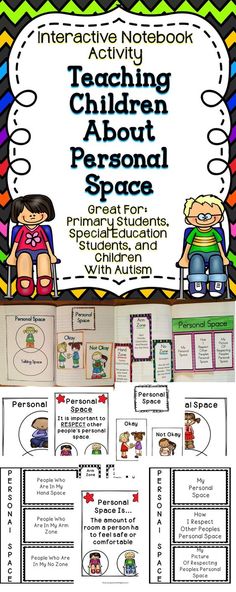 He also realizes the difference between enemies and friends.
He also realizes the difference between enemies and friends.
During this stage, children acquire language as well as cultural customs, such as hygiene, toilet or eating practices.
Youthful PeriodThis period begins when children prefer to play with others of the same age. More complex skills of interpersonal behaviour are learnt, such as cooperation, competition and compromise.
Here is a table of common milestones that occur at various ages as a child matures. It is a summary of the milestones in the book “The Young Child in Context: A psycho-social perspective“.
12 Months
- Shows affection for people she knows
- Likes to be around loved ones – to always hear or see them
- Passes an object or toy to an adult when asked, and sometimes even spontaneously
- Waves goodbye
- Begins to play games such as hide-and-seek
18 Months
- Plays alone happily but likes to be near a familiar adult or older sibling
- Likes other children but does not play with them
- Shows affection for family members, pets and dolls
- Begins to imitate people
- Repeats actions and expressions that receive a positive reaction
2 Years
- Likes people but is still egocentric
- Follows caregivers around the house and demands constant attention
- Imitates domestic activities
- May take turns but has difficulty sharing toys or adult attention
- Throws tantrums in order to be understood
- Happily plays near other children, but not yet with them (parallel play)
- Sometimes hits or bites children to get a reaction
- Can role play e.
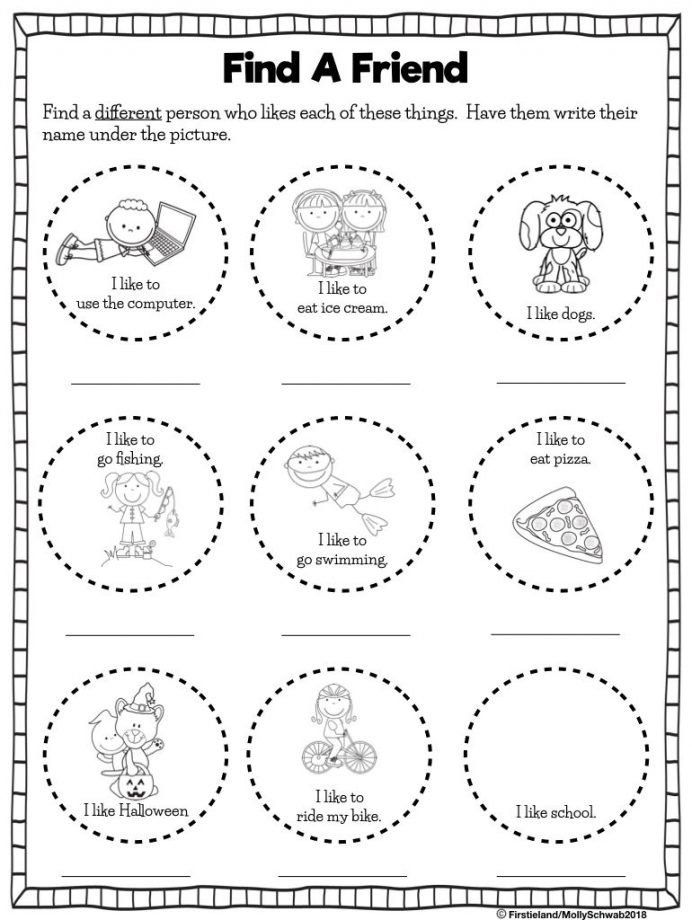 g. put a doll to sleep or wash the dishes
g. put a doll to sleep or wash the dishes
3 Years
- Begins to behave unselfishly
- Shows affection for younger siblings
- Likes helping with domestic activities such as shopping or cleaning
- Begins to share with others
- Enjoys playing alone and with other children
- Begins to show a preference for certain friends
- Begins to show sympathy when someone is upset
- Engages in make-believe play with dolls and toys and enjoys pretending to be someone else
- Still sees most things from their own perspective
- Talks about self, family and possessions
- Shows empathy with characters in stories
- Can wait for you to finish before talking
- Sometimes has an imaginary friend
4 Years
- Really enjoys the company of friends and can play in a group
- Often has a best friend
- Is strong willed
- Begins to form a sense of humour
- Understands taking turns and sharing
- Shows concern and sympathy towards younger siblings and friends
- Engages in dramatic make-believe play
- Becomes competitive
- Social skills develop such as – saying please and thank you (if taught), greeting people, talking to them, and showing respect towards others in the home
5 Years
- Behaves in a more controlled and sensible way
- Cooperates with companions and understands the need for rules and fair play
- Has a definite sense of humour
- Shows tenderness towards and is protective of younger children and pets
- Enjoys competitive games
- Enjoys fantasy games
- Chooses own friends (usually of the same sex)
- Begins to learn the value of compromise and negotiation
As you can see, sharing is a struggle for very young children.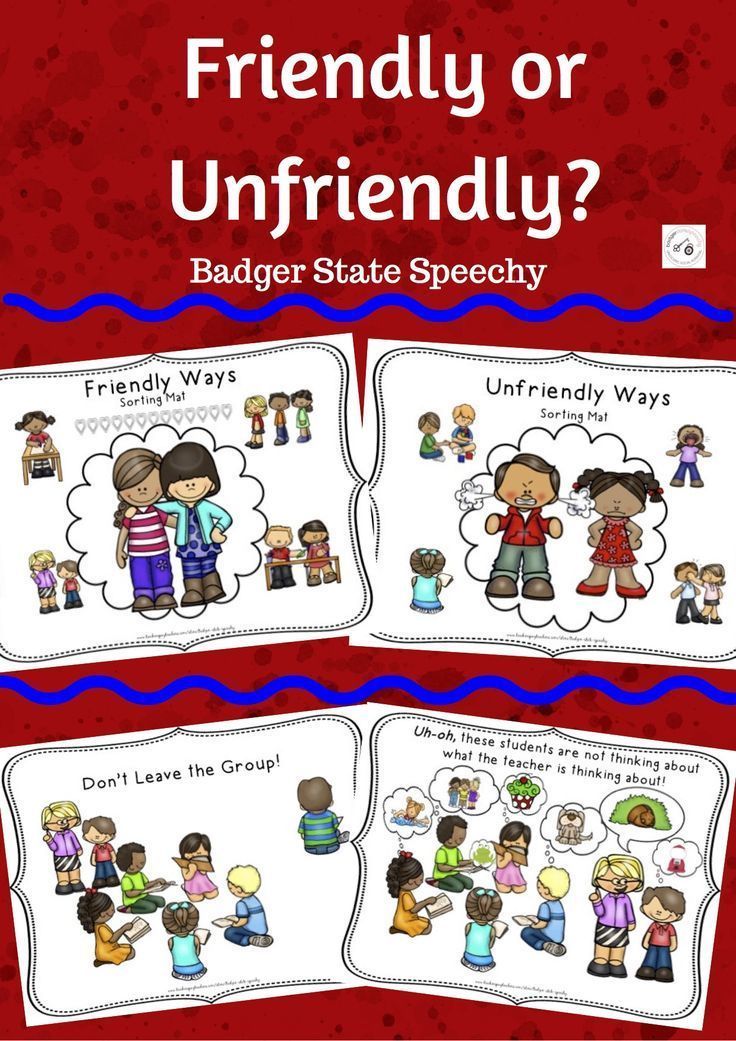 The advice is usually to divert and redirect attention when dealing with toddlers [source].
The advice is usually to divert and redirect attention when dealing with toddlers [source].
The most important activity your children can engage in, in order to develop their social skills, is play.
When preschool children play together they learn together.
Here are some reasons play is important for your child’s social development.
- It teaches cooperation and how to take turns
- Children are able to try different roles and personalities
- Play teaches children to verbalize their needs
- Kids learn to lead and follow
- It provides a broad base for the use of social language skills
- Children learn to respect others’ rights and possessions
- They develop an awareness of themselves as a member of a group
- Through play, they understand their own culture and values
- They gain knowledge about society’s rules and about group responsibility
- Play develops a positive self-image and self-concept
- It teaches how to participate in a group
- It promotes gender-role identification
- Children develop common goals and interests as they play together
- They learn to see others’ perspectives
- Children experience delight when playing
If you are wondering what activities would be most effective to help a child develop positive social skills, the answer is that you don’t really need a list of specific activities to “teach” them about socializing.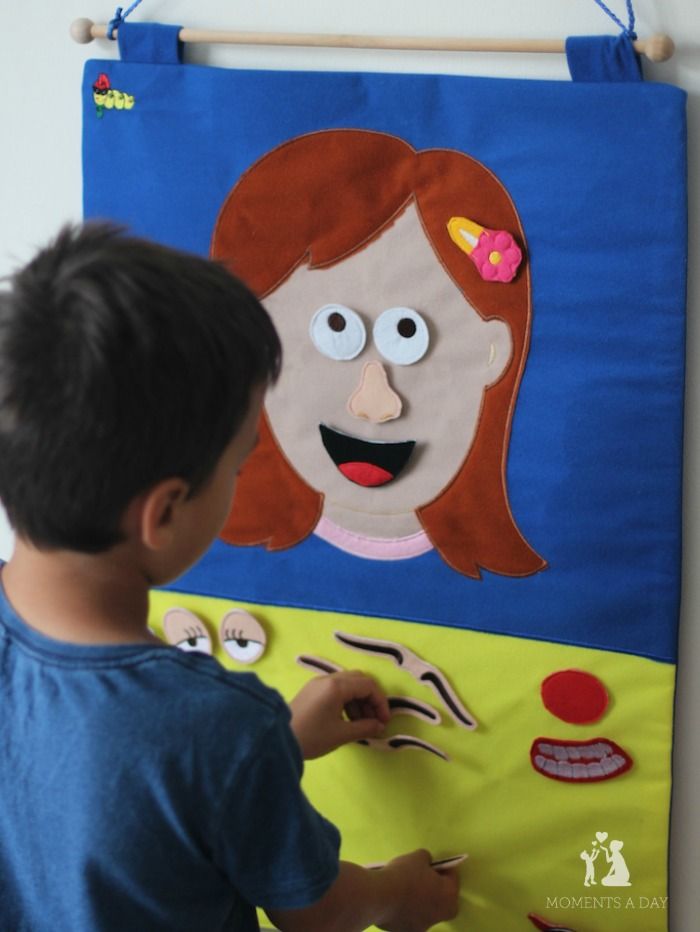
Rather, it is about giving them enough opportunities to play and interact and encouraging certain types of games and activities that involve interaction and cooperation.
You can discuss or play social skills games around topics like feelings and how to cope with conflict, but it will only be through experiencing these feelings and conflicts that your children will really learn these lessons and understand these concepts in a meaningful way.
Here are some simple social development activities for 3-5-year-olds.
1.
PlaydatesInvite friends over for a playdate and take your children to play with friends as often as you can. Playing with siblings is also good interaction.
The more opportunities your child has to mix with others, the more they will practise socializing.
Don’t leave your young child alone with a friend if he is not yet comfortable. Give him time to build trust.
2.
Group GamesPlay group games that involve taking turns and following rules.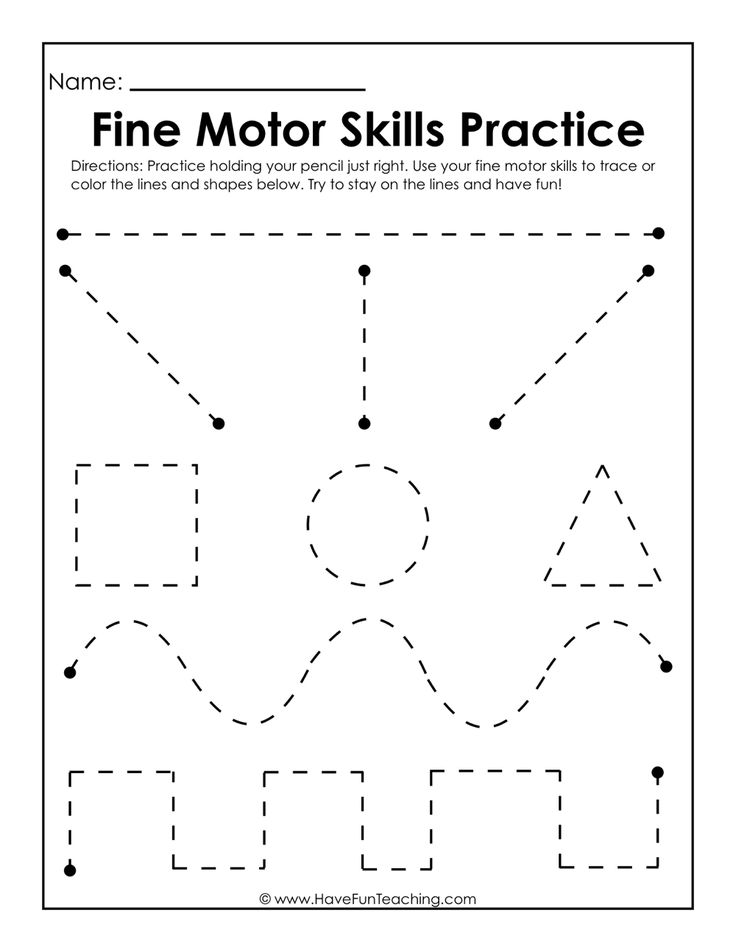
Children will learn with time that social interaction is fun and that in order for the game to work, they need to consider each other and all be active participants.
Also, encourage musical games such as musical chairs where there are rules to follow and children have to compete while still considering each other and being comfortable with losing sometimes (e.g. if your friend gets to a chair before you).
This takes maturity to understand.
3.
Board GamesBoard games are an excellent activity for older preschool children. These should have multiple players (even if you start with 2), rules and an objective (e.g. in Snakes and Ladders the objective is to reach the end first).
It can be a complex task for a child to learn to follow rules and keep the game positive while competing with friends or family members.
Younger children can start with simple card games or very basic board games.
4.
Fantasy PlayFantasy, or dress-up play, is an important part of learning to socialize. During this kind of play, children make sense of their world and the people around them by role-playing.
During this kind of play, children make sense of their world and the people around them by role-playing.
This is how they “practise” being an adult, behaving and interacting as an adult would. They also act out their own social customs and norms.
Fantasy play is a great social learning activity for children playing with one or more friends, as well as for smaller children playing alone.
Even though the child is alone, the activity revolves around pretending to interact with others, which is a great way to safely act out an interaction.
Provide opportunities at home by having a dress-up section in your child’s room. Provide different themed clothes and props and change them frequently to encourage new ideas.
5.
BlocksWhen children play with blocks together, they initially play alongside each other, building their own structures.
With time and maturity, they begin to share blocks, take an interest in each other’s structures and finally end up building something together.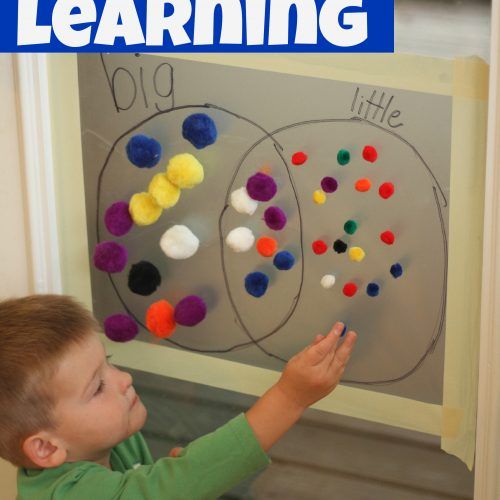
This is one of those activities where you will see this progression clearly.
By the time children are building together, they are learning to share, listen to each other’s ideas, problem-solve, organize, share opinions, negotiate, compromise and work towards a common goal.
6.
Sensory PlaySensory play is a fun activity that children love to do together. Whether they are playing with water, mud or sand, there is much sharing, negotiating and cooperation. It also often leads to fantasy play.
7.
Creative PlayWhen children are involved in creative activities such as drawing, painting, cutting, pasting or moulding playdough, they are often deep in conversation at the same time.
These activities usually happen around a table where the children are sitting calmly and are fully engaged with their playmates.
Some of the most intriguing and complex socializing I have witnessed has been around an art table.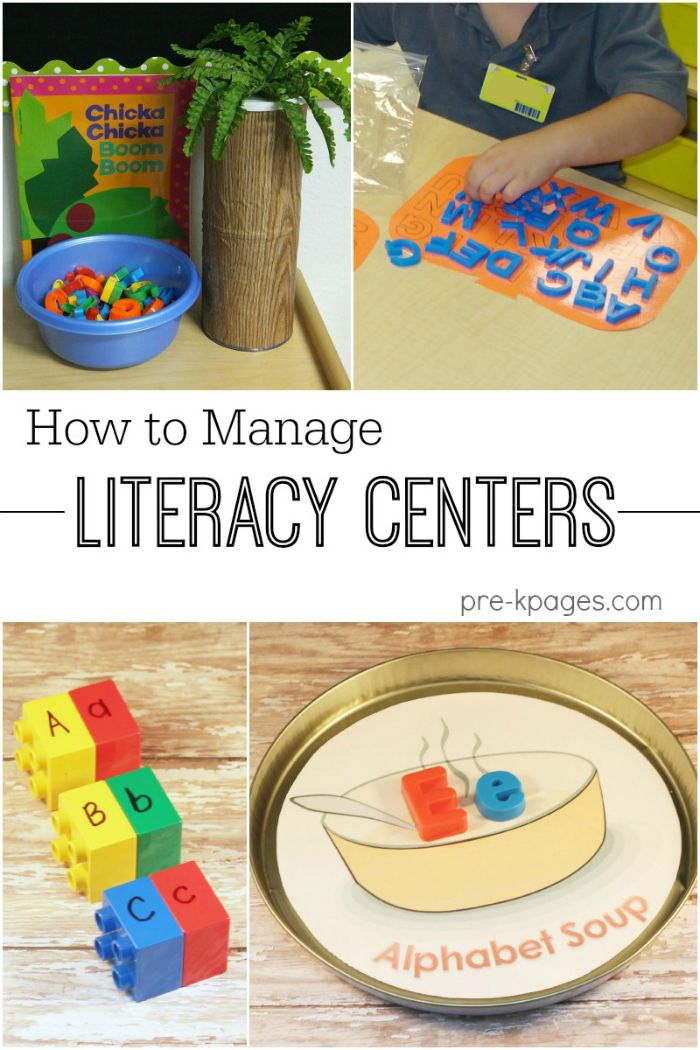
8.
ReadingReading to a child is my absolute favourite activity and one with so many benefits. Stories are all about people and animals and their relationships and interactions.
Read to your child daily and she will constantly be listening to how characters socialize, deal with problems, show emotions and generally interact.
You may find it hard to explain to a young child what empathy is, for example, but you can certainly teach the message with a story and let your child experience this trait on her own through listening.
9.
DiscussionsAlong with reading, discussions are another way to teach your children social skills.
Use every opportunity possible to discuss how your children feel, to talk about their friendships and even discuss the characters in the stories and how they handled certain situations.
When your children experience conflict with a friend, discussing possible solutions or how they can handle it is a far more educational experience than immediately intervening.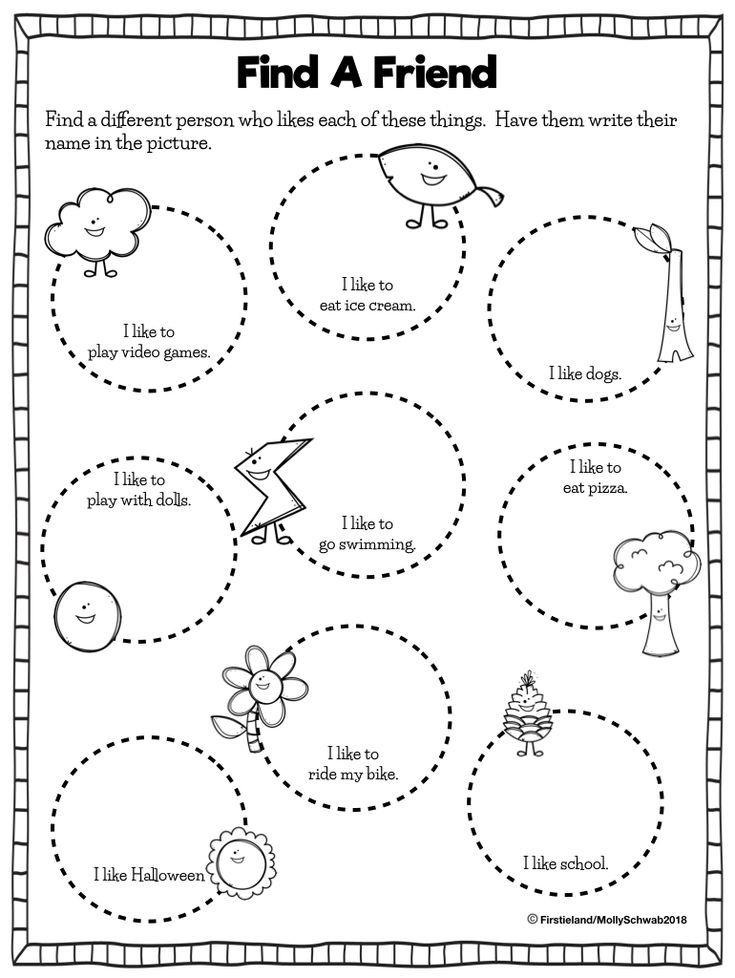
In my experience teaching in the classroom, the children who had lovely manners were taught at home as toddlers. Those who hadn’t been taught seldom spontaneously said please or thank you without being constantly prompted and reminded.
It is too late to teach a 3 or 4-year-old manners and courtesy. Start as early as possible.
11.
Free PlayThe best socializing and learning occurs naturally – when children are playing freely with each other.
You may choose to present and encourage certain activities, such as an art project, but know that any time spent playing with others is time they are learning valuable social skills.
Try not to let screen time or too many planned activities get in the way of real play and socializing.
…and don’t forget these two important points:
12.
Build a Healthy Relationship With Your ChildA child’s primary relationship – with his parents – is the basis for all future socializing.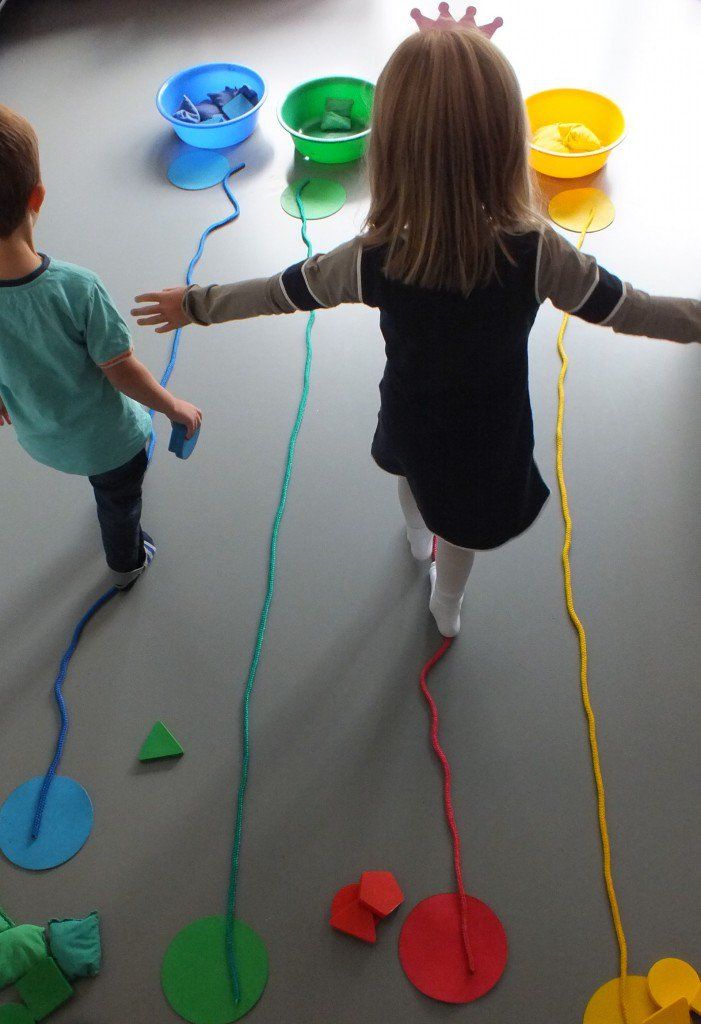
The relationship should be warm and close. Your child should feel love, security, acceptance, trust and self-esteem.
13.
Model Positive BehaviourChildren learn about socially acceptable behaviour by watching their parents. They learn more from watching you than from listening to you.
I hope you enjoyed these ideas and activities for developing social skills in preschoolers.
Join Empowered Parents + and you’ll receive a downloadable set of printable puzzles, games and short stories, as well as the Learning Through Play Activity Pack which includes an entire year of activities for 3 to 6-year-olds.
Access is free forever.
Signing up for a free Grow account is fast and easy and will allow you to bookmark articles to read later, on this website as well as many websites worldwide that use Grow.
- Share
100+ Social Skills Activities For Preschoolers
Inside: 100 + social skills activities for preschoolers that teach them about manners, making and keeping friends, understanding their emotions, and more!
Social skills activities for preschoolers helps teach young children valuable social skills.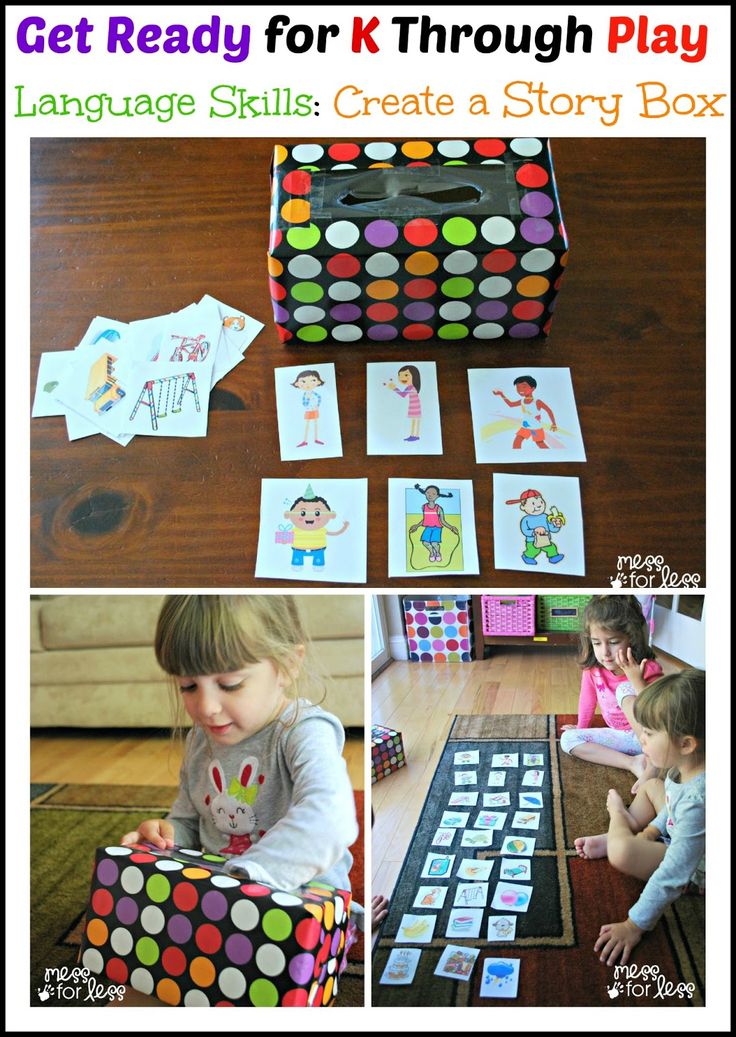 There are many benefits to children developing pro-social skills. For instance, research indicates that academic success in the first few years of school is significantly based on the development of children’s social and emotional skills. When kids lack crucial social skills, it makes it difficult for them to learn. For example, if a child struggles with listening and controlling their negative behaviors, focusing during class and retaining the information they are taught can be challenging.
There are many benefits to children developing pro-social skills. For instance, research indicates that academic success in the first few years of school is significantly based on the development of children’s social and emotional skills. When kids lack crucial social skills, it makes it difficult for them to learn. For example, if a child struggles with listening and controlling their negative behaviors, focusing during class and retaining the information they are taught can be challenging.
Essential Social Skills For Preschoolers
Many kindergarten teachers report that in order for preschoolers to make a smooth transition to school, they need to have certain social and emotional skills. They need to be able to:
- have positive relationships with peers
- listen and follow directions
- solve social problems
- effectively communicate emotions
- work well with others
- use good manners
I’ve compiled a list of social skills activities for preschoolers to help teach young children how to get along with others, how to make and keep friends, and how to effectively communicate their emotions.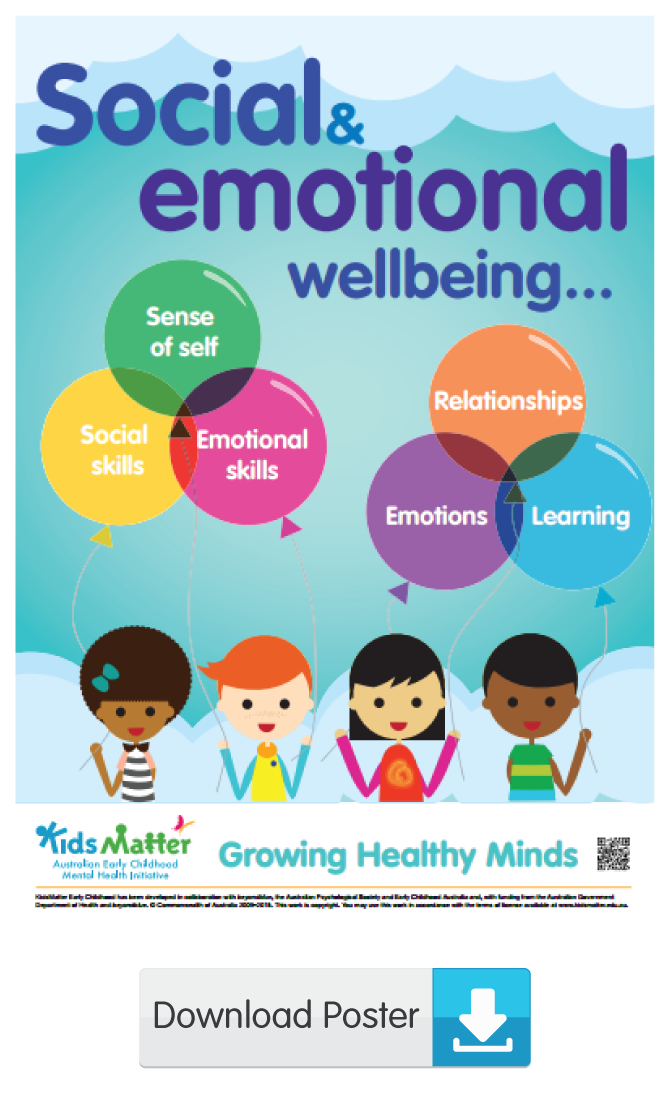 I hope you find this list of activities useful!
I hope you find this list of activities useful!
Feelings and Emotions Social Skills Activities For Preschoolers
- Feelings Identification Activities by Kiddie Matters
- Activities To Teach Kids About Feelings by Gift of Curiosity
- Emoji Feeling Faces: Feelings Recognition
- Identifying Feelings With Self Portraits by Still Playing School
- Free Printable Inside Out Bingo Game by Carrie Elle
- Lego Emotion Themed ‘I-Spy’ Game w/Free Printable by And Next Comes L
- 5 Circle Time Lessons About Emotions by No Time For Flash Cards
- Feelings Activities & Fun Ideas For Kids by Childfun
- Playful Activities to Help Kids Learn About Feelings by Play Dr.Mom
- Books About Emotions For Preschool by Pre-K Pages
- Tools For Teaching Emotions In Kids by Laughing Kids Learn
- Musical Feelings Games by Fumbling Through Parenthood
- Inside Out Feelings Tic Tac Toe by The Creative Social Worker
- Best Empathy Games, Apps, and Websites For Kids by Common Sense Media
- Printable Emotion Cards for Preschoolers by From ABCs To ACTs
- Paper Plate Emotion Masks by No Time For Flash Cards
- Preschool Feelings Theme by Lanie’s Little Learners
- Teaching Emotions With Songs, Activities, and Games by Testy Yet Trying
- Happy Sad Sorting by The Princess And The Tot
- Emotion Story Stones For Kids by Where Imagination Grows
- Helping Kids Identify Mood by Kori At Home
- Emotion Matching Game by B-Inspired Mama
- Free Printable Emotions Board Game by Life Over C’s
- Color My Feelings by Teach Beside Me
- Discussing Emotions With Pasta Faces by Having Fun At Chelle’s House
Related Article: The Ultimate Guide To Social Skills Activities For Kids
Social Skills Activities For Preschoolers To Build Listening Skills
- Free Conversation Game by Speech Paths
- Listening Activities w/ Blocks by Hands On As We Grow
- Make Popsicle Puppets and Practice Communication by Education.
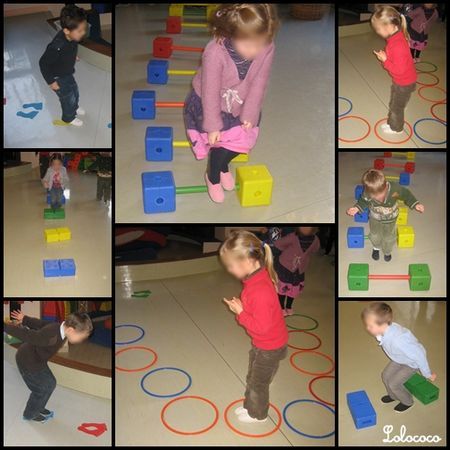 com
com - Play Musical Statues by Education.com
- Ways To Support Children’s Listening Skills by Sing Dance Play Learn
- Do Three Things Listening Game-by Exploration Laboratories
- Following Directions And Listening Game: Teacher Says! by Coffee Cups and Crayons
- 20 Listening Games And Activities For Preschoolers by Virtual Speech Center
- Back To Back; Ear To Ear: A Language and Listening Game by Mosswood Connections
- Do As I Say, Not As I Do by Mosswood Connections
- Teach Kids To Follow Directions With Relay Races by Coffee Cups and Crayons
- Following Directions Grid Game by Kids Activities Blog
- Five Playful Ways To Work On Listening Skills by Playing With Words 365
- Following Directions Lessons by Elementary School Counseling
- Can You Draw Something You Can’t See by Nurture Store
- Following Directions Game by One Stop Counseling Shop
- Free Following Directions Activities by Learning Specialist Materials
- Put On Your Listening Ears by Stories by Storie
- Free Printable Simon Says Game by 730 Sage Street
- Listening And Learning Activities With Pete The Cat by Kathy Griffin’s Teaching Strategies
Friendship Social Skills Activities For Preschoolers
- How To Be A Friend by Gifts of Curiosity
- How To Play With Friends w/free printable by Powerful Mothering
- Leonardo The Terrible Monster (How To Be a Good Friend Activity and Game by The OT Toolbox
- Friendship Crafts, Activities, and Printables by Kids Soup
- Pass The Ice Cream: Sharing Activity for Preschoolers by Sunny Day Family
- Friendship Art by Munchkins And Mom
- Kindness Postcards by Growing Book By Book
- Friendship: Exploring Being A Friend by The Kinder Corner
- 10 Books About Making Friends by Growing Book by Book
- The Rainbow Fish Book: Activities, Staff, and Snacks by Mom On Time Out
- Free Taking Turns And Sharing Songs And Rhymes by Bits of Positivity
- Good Behavior Games For Preschool by Parents.
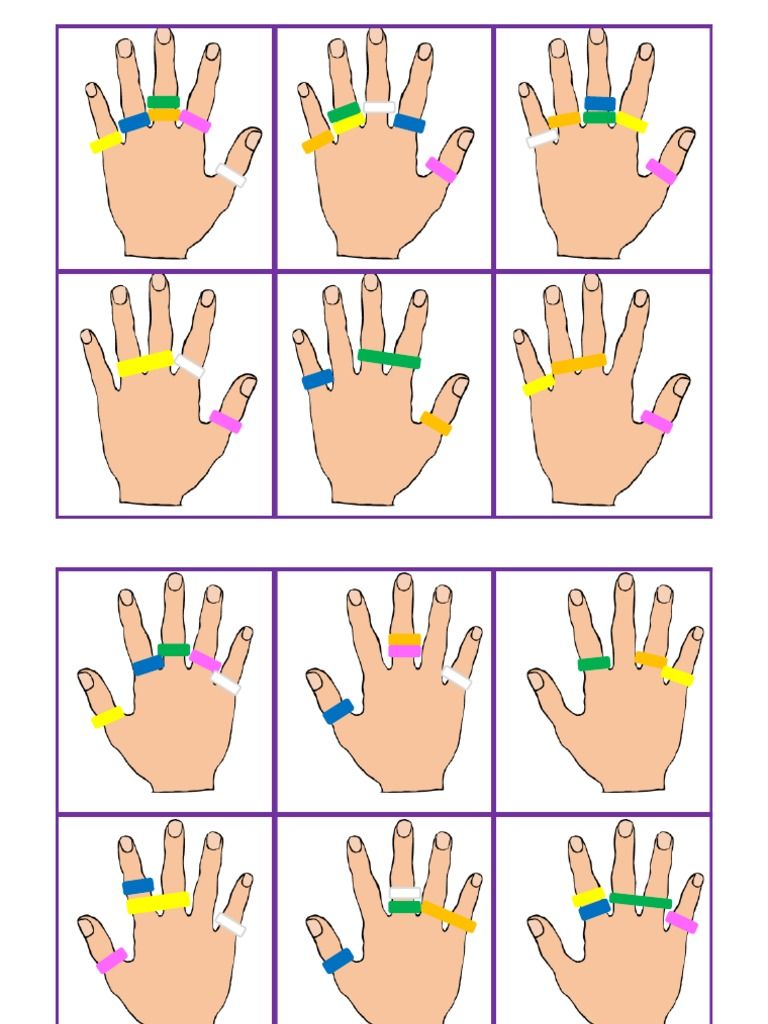 com
com - Pony Bead Friendship Reminder Bracelet Craft by The PreSchool Toolbox
- Our Friendship Flower by Dream A World
- Hands Are Not For Hitting by Rhinestones & Pinecones
- Free Friendship Resources by Whimsy Workshop Teaching
- Teaching Kids The Keys To Friendship by Simple At Home
- Friendship Tree by Primary Displays
- Teaching Social Emotional Skills With A Solutions Chart by Littlest Scholars
- Free Social Story: Being A Good Friend by Miss Allison’s Class
- Games For Teaching Boundaries by eHow
- Kindness Scavenger Hunt by Kiddie Matters
Teamwork/Cooperation Social Skills Activities For Preschoolers
- Five Activities That Promote Teamwork by Teach Preschool
- Group Art Activity: Tennis Ball Painting by Anna Reyner
- Roll The Ball by PreK and K Sharing
- Team Puzzle Play by Simple Home Blessing
- The Peanut Game by Education.
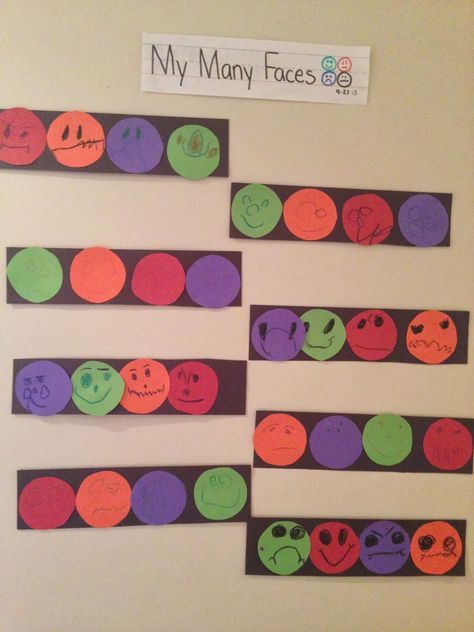 com
com - Team Building Activities For Kids by Kid’s Activities Blog
- Bean Sort Easy Activity by Busy Toddler
- Matching Paths by Busy Toddler
- 9 Cooperative Games For Preschoolers
- Best Cooperative Games For Noncompetitive Kids by My Little Poppies
- Social Time by Mrs. Winter’s Bliss
- Preschool Engineering by Handmade Kid’s Art
- Team Building Games by Tickled Pink In Primary
- Parachute Play In Preschool by Teach Preschool
- Race To Fill The Cup by Frugal Fun For Boys And Girls
Good Manners Social Skills Activities For Preschoolers
- Manners Matter Freebie by The Helpful Counselor
- Minding Our Manners by Sherbees
- Fun Activities That Teach Manners by How Does She
- Free Manners Printable Pack by Kori At Home
- Good Manners Themes and Activities by Child Care Lounge
- The Manners Song by DLTK Growing Together
- Teaching Kids Manners by The Relaxed Homeschool
- Little Mandy Manners (video) by Tiny Grads
- Free Manners matching Cards by Deb@Living Montessori Now
- Let’s Learn Manners Printable Pack by To The Moon And back Blog
- Monster Manners Game by File Folder Fun
- Manners Social Stories And Activities by Special Needs For Special Kids
- Games That Teach Kids Good Manners by How To Adult
- Can You Teach My Alligator Manners (Online Game) by Disney Junior
- Free Behavior Sort Cards by Mrs.
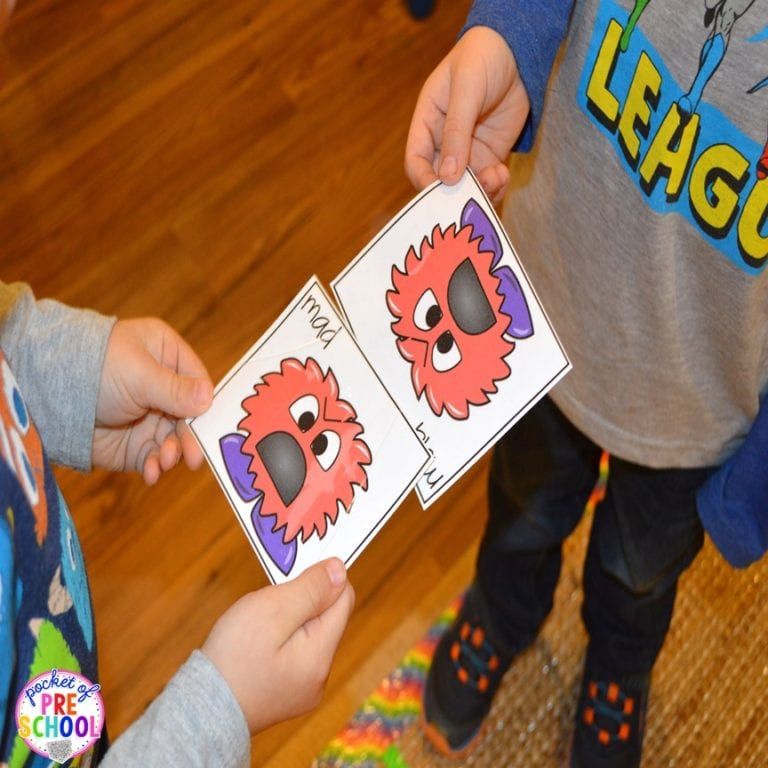 Ricca’s Kindergarten
Ricca’s Kindergarten
Decision Making Social Skills Activities For Preschoolers
- Tattling Vs. Reporting File Folder Sorting Game by Kiddie Matters
- I Am A Bucket Filler by Kiddie Matters
- Making Good Choices by Pocket Of Preschool
- Making Good Choices At School by Peace, Love, and Learning
- Life’s Good Choices And Bad Sorting Activity by Miss Pentagirl Kinderpuzzle
- Teaching Kids About Respect by Kiddie Matters
- Choosing Good Friends by Your Life Uncommon
- Lego People Challenge by You Clever Monkey
- What Pet Should I Get Decision Making and Graphing Preschool Activity by Playground Parkbench
- Should I Share My Ice Cream by Views From A Step Stool
Social skills of preschoolers - the development of social skills in children
The development of social skills is a necessary point of education. A child with a high degree of socialization will quickly get used to kindergarten, school, any new team; in the future will easily find a job.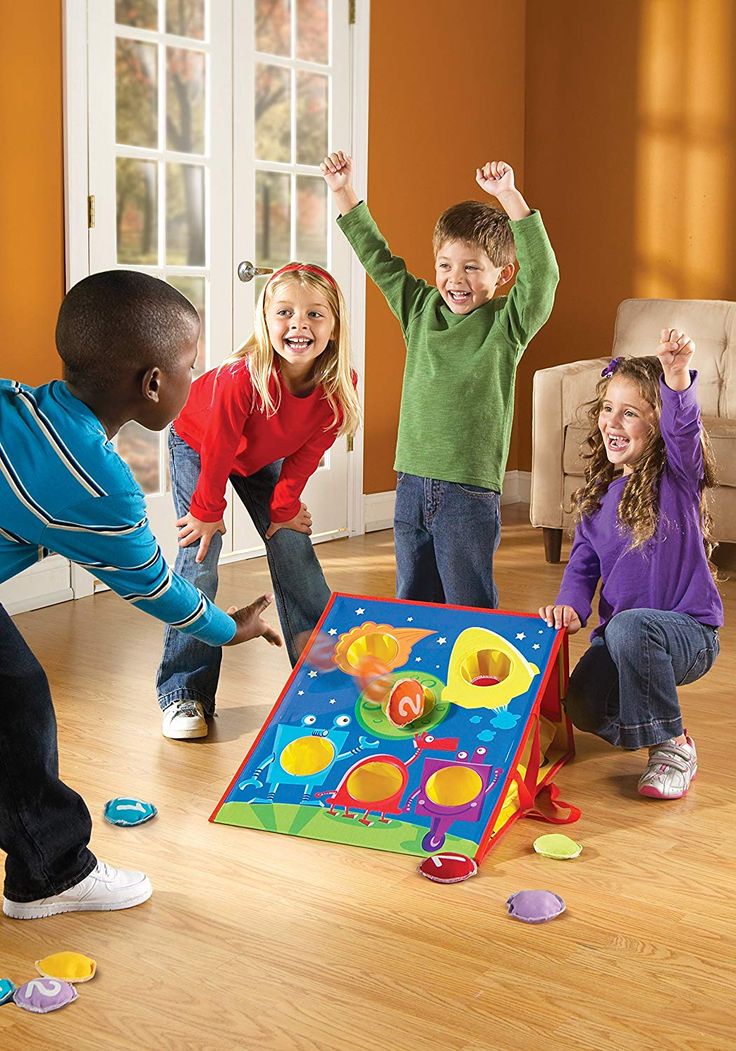 Social skills have a positive effect on interpersonal relationships - friendship, the ability to cooperate.
Social skills have a positive effect on interpersonal relationships - friendship, the ability to cooperate.
Let's figure out what social skills are.
What are social skills and why develop them?
Social skills - a group of skills, abilities that are formed during the interaction of a person with society and affect the quality of communication with people.
Man is a social being: all our talents and aspirations are realized thanks to other members of the group. Others evaluate our actions, approve or condemn our behavior. It is difficult to reach the pinnacle of self-actualization alone.
That is why social skills are important. They should be developed from early childhood and honed throughout life.
Social skills are a reflection of the child's emotional intelligence, to which educators and teachers assign an important role in the process of personality development. Without this group of skills, a smart child will not be able to apply the acquired knowledge in practice: it is not enough to create something outstanding, you need to be able to correctly convey thoughts to the public.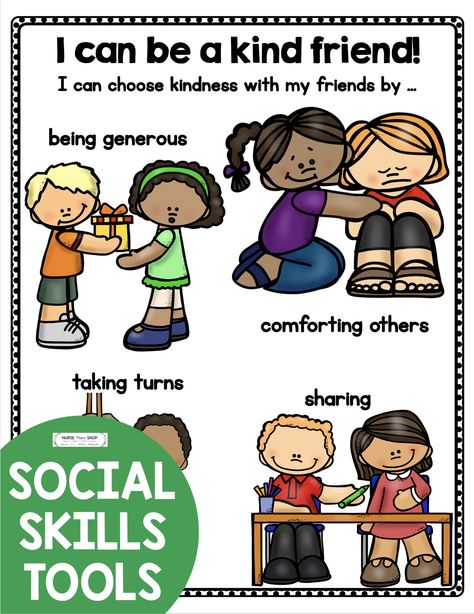
Sometimes people mistakenly believe that social skills relate exclusively to the topic of communication, communication. In fact, skills include many multidirectional aspects: an adequate perception of one's own individuality, the ability to empathize, work in a team, etc.
Why do we need social skills?
- Regulate the area of interpersonal relationships: the child easily makes new friends, finds like-minded people.
- Minimize psychological stress: children with developed social skills quickly adapt, do not feel sad due to changes in external circumstances.
- They form an adequate self-esteem from childhood, which positively affects life achievements and development in adulthood.
- Social skills cannot be separated from building a successful career: the best specialists must not only understand the profession, but also have high emotional intelligence.
Development of social skills in a child
Social skills need to be developed from preschool age, but older children and even teenagers may well learn to interact with the world.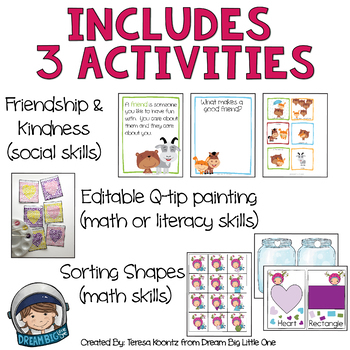
It is recommended to pay attention to areas of life that bring discomfort to the child, significantly complicate everyday life.
- Friends, interesting interlocutors: the kid does not know how to join the team, he prefers to sit in the corner while the others play.
- Verbal difficulties. The child does not understand the rules of conversation, is poorly versed in the formulas of etiquette (when you need to say hello, say goodbye, offer help).
- Problems with the non-verbal side of communication. Such a baby does not recognize the shades of emotions, it is difficult to understand how others relate to him. Cannot "read" faces and gestures.
- Does not know the measure in expressing a point of view: too passive or, conversely, aggressive.
- The child bullies classmates (participates in bullying) or is a victim.
In case of severe moral trauma, one should consult a psychologist: for example, school bullying is a complex problem that children are not able to cope with on their own.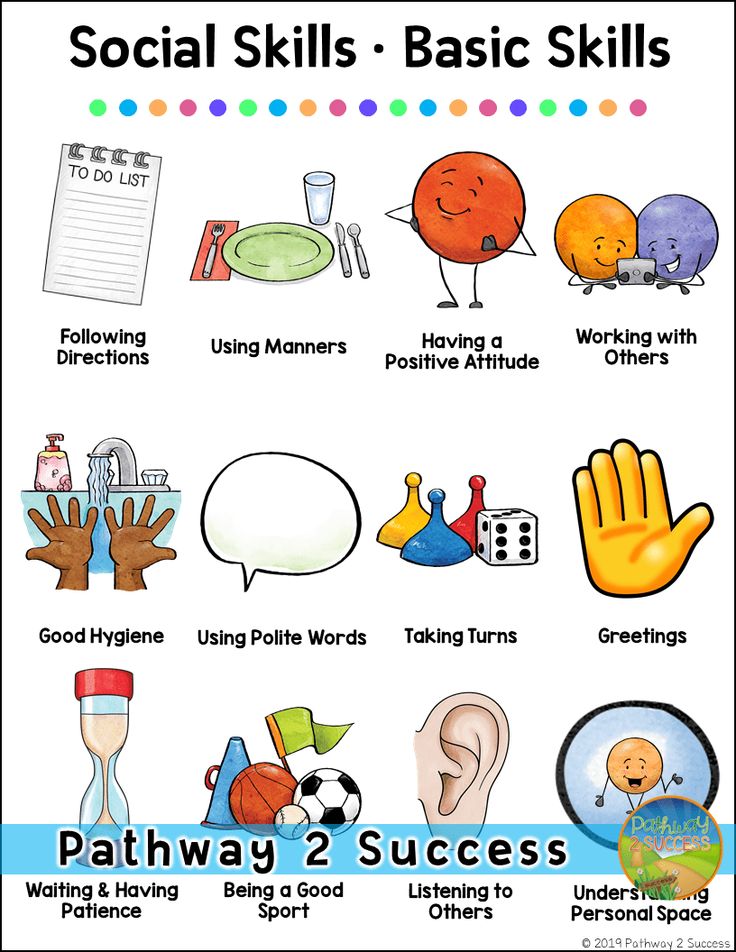 The involvement of parents and teachers is required.
The involvement of parents and teachers is required.
In other cases, family members may well be able to help the child develop social skills.
What are the general recommendations?
1. Be patient
Don't push your child to get the job done. Let them take the initiative: for example, do not rush to help during school gatherings, let the baby work on the problem on his own. The same goes for lessons and other activities.
2. Support undertakings
Children's dreams seem trifling to adults, but the initiative turns into a habit over the years and helps to discover new projects, meet people, and experiment.
3. Criticize the right way
When making negative comments, remember the golden rule of criticism: analyze the work, highlighting both positive and negative sides in a polite manner. Commenting on the specific actions of the child, and not his personality or appearance - this will lead to problems with self-esteem.
4. The right to choose
It is important for children to feel that their voice is taken into account and influences the course of events. Invite your child to personally choose clothes, books, cartoons. Ask about ideas, plans: “We are going to have a rest together at the weekend. What are your suggestions?
5. Personal space
Make sure that the baby has a place where he can be alone and take a break from talking. Personal things should not be touched: rearrange without prior discussion, read correspondence with friends, check pockets, etc.
Children, noticing the respectful attitude of adults, quickly begin to pay in the same coin; the atmosphere in the family becomes warm and trusting.
What social skills should be developed in a child?
Let's dwell on the main qualities and skills, the development of which is worth paying attention to.
1. The ability to ask, accept and provide help
Without the ability to ask for help, the child will deprive himself of valuable advice; the lack of the ability to accept help will lead to losses, and the inability to provide help will make the baby self-centered.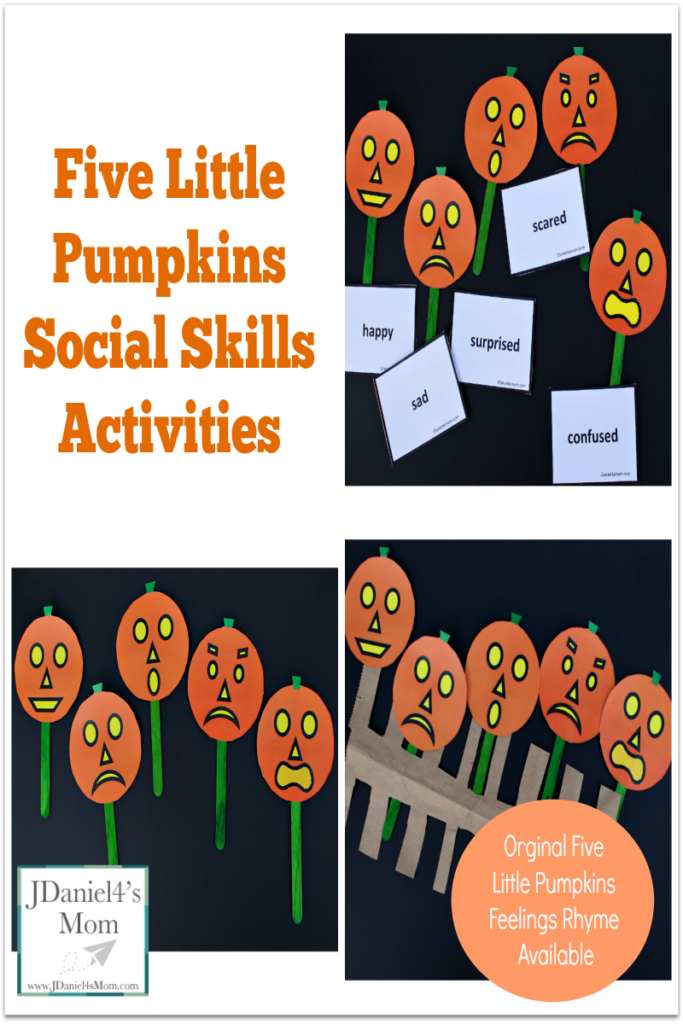
- Let the child help those in need: for example, a lagging classmate.
- Explain to your child that getting help from friends and teachers is not a shame.
- Show by personal example that mutual help enriches experience: tell how you exchange advice with colleagues, friends.
2. The ability to conduct a conversation and get the right information
Being a good conversationalist is difficult, but the skill is honed over time and brings a lot of benefits.
- Prompt your child for dialogue development options: for example, you can start a conversation with a relevant question, a request for help.
- Do not leave the child in the role of a silent listener: when discussing pressing issues at home, ask the opinion of the baby.
- Support children's public speaking: presentations at school, performances, funny stories surrounded by loved ones will add confidence.
3. Empathy
Empathy is the ability to recognize the emotions of others, put yourself in the place of another person, empathize.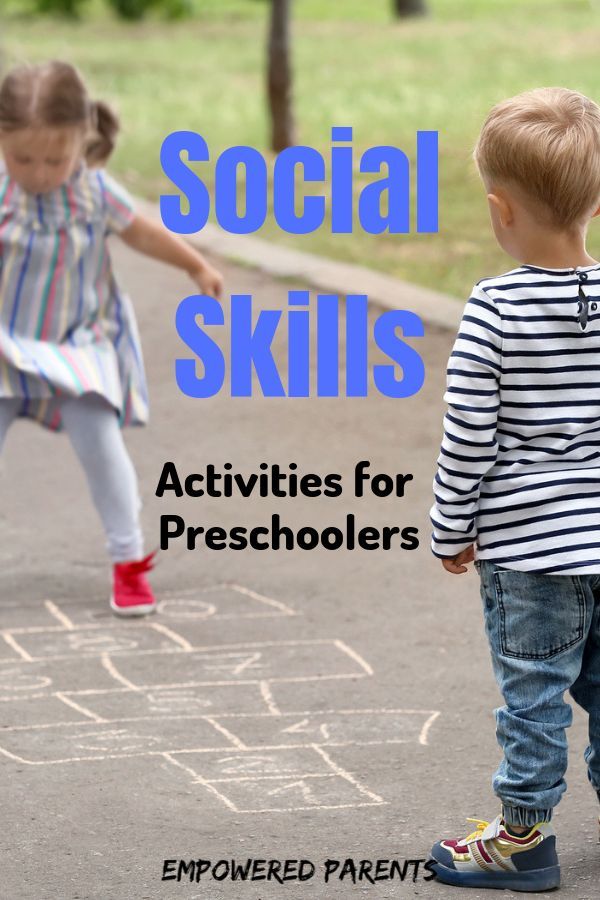
This ability will make the child humane, prudent. How can it be developed?
- Start by recognizing the child's feelings - it is useless to listen to people if the person does not feel personal experiences. Ask your baby: “How do you feel after a quarrel with friends?”, “Do you want to relax today?”
- After conflicts with classmates, ask your child how the children with whom the quarrel may feel now.
- While watching cartoons, reading books, pay your child's attention to the emotional state of the characters.
4. Ability to work in a team
Many children can easily cope with tasks alone, but this is not a reason to refuse to work in a team. It gives the opportunity to exchange ideas and experience, delegate tasks, achieve goals faster and more efficiently.
- If the child does not communicate with members of the team, try to introduce him to another social group: for example, the lack of communication with classmates can be compensated by a circle of interests, where the child will feel calmer.
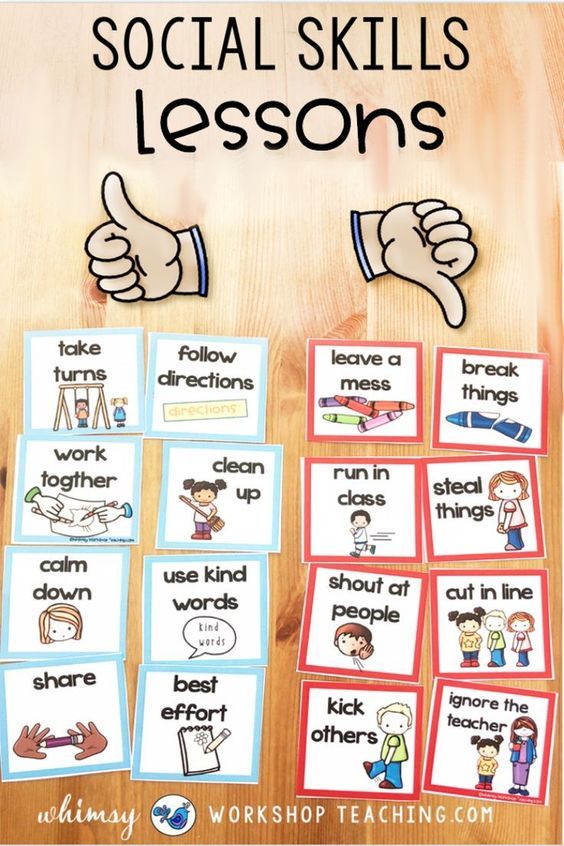
- Make the family a friendly team in which the child has his own "duties": for example, do housework, remind parents of upcoming events. Any activity related to the well-being of other family members will do.
5. Respect for personal boundaries
The absence of an obsessive desire to interfere in other people's lives is a valuable skill that helps to win people's sympathy.
- Respect the child's personal boundaries: do not enter the nursery unannounced, do not rummage through personal belongings and correspondence, if the matter does not concern the life and safety of the baby.
- If the child violates other people's boundaries (takes toys without permission, asks uncomfortable questions), talk about it in private.
6. Ability to overcome conflict situations
It is difficult to imagine our life without conflicts. The task of the child is to learn how to culturally enter into a discussion, defend his point of view, and not be led by the provocations of his interlocutors.
- Discuss problems that arise calmly, without raising your voice. Do not put pressure on the child with parental authority unnecessarily: the child is a separate person who has the right to an opinion.
- Do not judge people for views that differ from those of your family but do not affect your well-being. Show your child that the world is very different.
- You can demonstrate to children the basics of a civilized dispute, explain what arguments are, etc. It is advisable to teach this child in kindergarten.
7. Self-confidence
Stable and adequate self-esteem is a quality that not all adults possess.
It is formed under the influence of many factors: relationships between parents, the role of the child in the family circle, the characteristics of the environment that surrounded the child in early childhood.
It is important that the child does not grow up to be either a narcissistic narcissist with fragile self-esteem, or an overly shy person.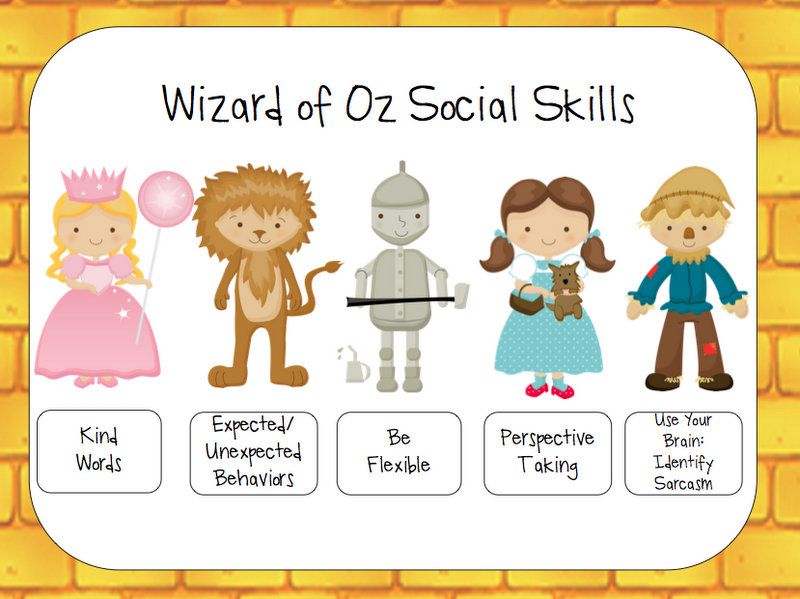 How can you help your child find balance?
How can you help your child find balance?
- Praise your child for personal progress: to receive a compliment from parents, it is not necessary to win prizes in school competitions. The zeal of the baby, the interest shown and the stamina also deserve praise.
- Explain, remind the children that initially they are worthy of respect and love, like all people around.
Social skills will help in many areas of life: in studies, hobbies, friendships, building a reputation in a team. The main thing is to encourage and support children at all stages.
Emotional Intelligence for Children
Introducing children to emotions, how to manage them and how to express themselves in teamwork, through situational games
learn more
Social skills in early childhood for building healthy relationships and the overall well-being of the child
Early childhood social skills for building healthy relationships and overall child well-being
Activities
Bini Bambini
Binibambini
Ukraine, Kharkiv
The development of children's social skills is an important part of education.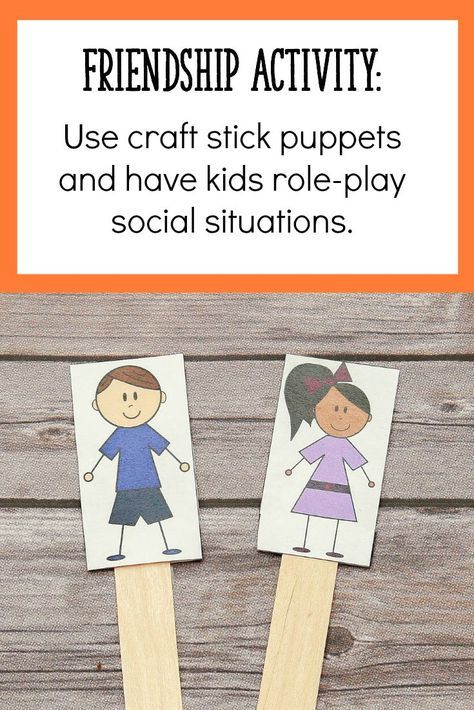 Strong social skills lead to a more comfortable quality of life and a less stressful response to various life situations. Through proper verbal and non-verbal communication, active listening and teamwork, children can build better relationships with others, perform better in school and have a better chance of success in their careers. As a rule, preparation for school partially involves teaching the basics of social interaction of children, but it is recommended to pay attention to them much earlier.
Strong social skills lead to a more comfortable quality of life and a less stressful response to various life situations. Through proper verbal and non-verbal communication, active listening and teamwork, children can build better relationships with others, perform better in school and have a better chance of success in their careers. As a rule, preparation for school partially involves teaching the basics of social interaction of children, but it is recommended to pay attention to them much earlier.
Social communication skills are not formed by themselves: they need to be taught and, more importantly, they need to be demonstrated. For this, there are tasks by age. The first social interaction in a child's life is with adults. Therefore, if you want your child to adopt adequate behavior patterns, it is important to be a good role model yourself, setting an example for him.
Social skills for preschool children: should they be given attention in early childhood?
In short, yes, it is necessary.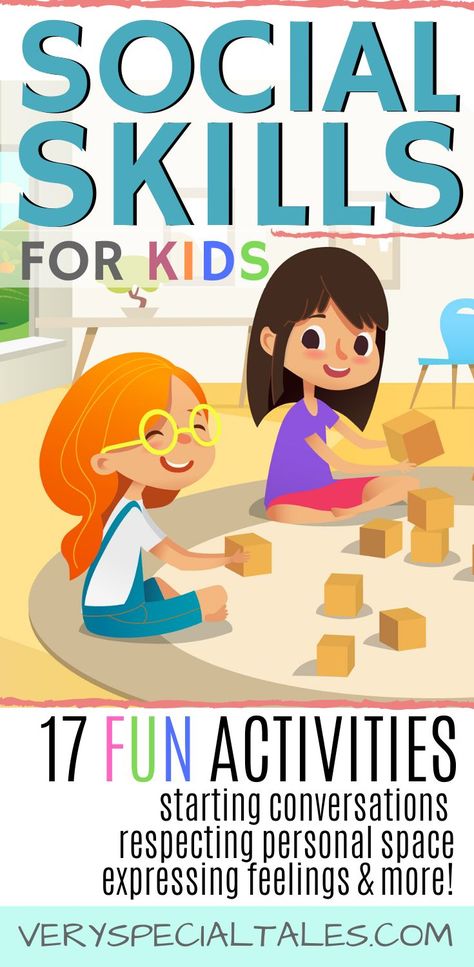 The formation of social skills in preschool or early childhood children plays an important role. Let's see why these humanitarian skills, or soft skills, as they are called today, are no less important than functional skills, hard skills, which involve, for example, knowledge of the alphabet.
The formation of social skills in preschool or early childhood children plays an important role. Let's see why these humanitarian skills, or soft skills, as they are called today, are no less important than functional skills, hard skills, which involve, for example, knowledge of the alphabet.
If a child has sufficiently developed social skills, then he will experience less stress in a new social environment, that is, he will feel more comfortable. In addition, children who feel anxious or stressed have a harder time concentrating at school or on the playground, making it difficult for them to be actively socially involved in any activity.
Children who have been taught to correctly express their emotions, communicate, show empathy (this includes all the skills associated with communication) confidently cope with new social situations. Other benefits of good social skills include better grades, better chances of going to college and finding a job, and generally stronger and healthier relationships.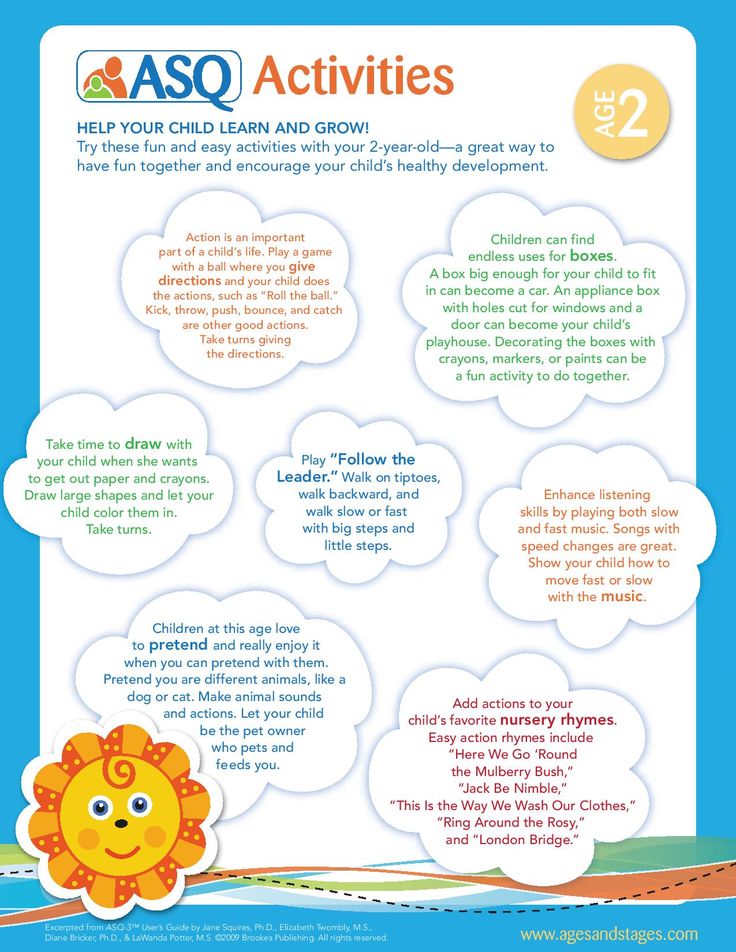 What are the most important social skills for preschool children?
What are the most important social skills for preschool children?
There are many communication skills that a child will need. Below are five key things that will prepare him for kindergarten.
Greeting
Entering a room with strangers and introducing yourself is difficult even for an adult, let alone a toddler who is still in the process of learning words. Practice saying hello to family or friends. And when a child encounters such a situation in a preschool group, he will no longer be so scared.
For example, you are waiting for your grandmother to visit. Prepare your baby: “Grandma is coming soon. When she comes in, let's say "Hi, grandma!". This will give the child an idea of what is said in such situations. It may take more than one time and more than one repetition to consolidate the result, but do not worry, over time everything will work out. A similar scheme can be applied when guests leave. Let your child know that, for example, the grandfather is leaving soon and you will need to say goodbye.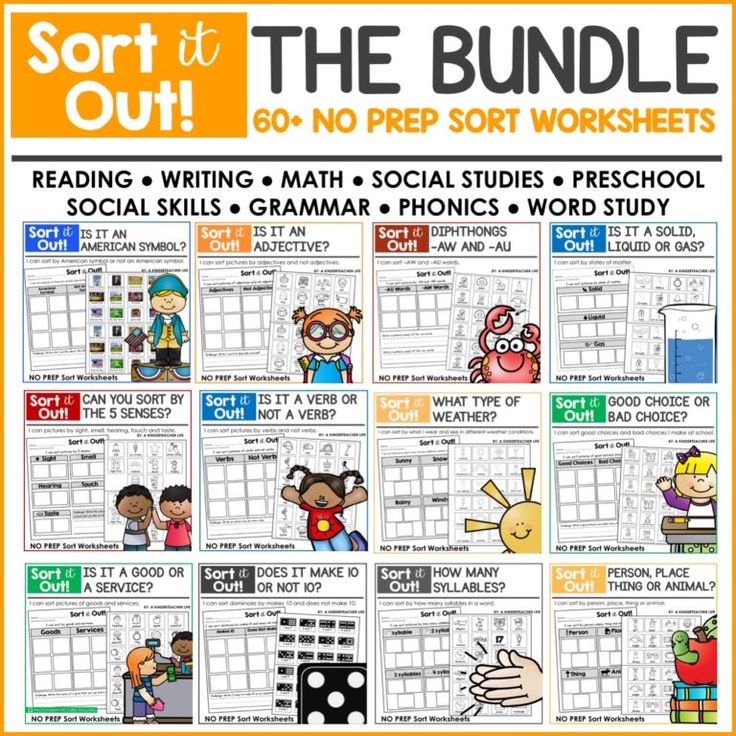
Over time, you can practice with questions like “How are you?”. By the way, this is a great way to help your child learn to talk about their feelings. You can also practice with cards that show pictures of basic emotions like “cheerful”, “sad”, “tired” or “happy”. Taking out a card, you can ask the child to depict this or that emotion and name it.
Polite words and etiquette
To hear the cherished “please” and “thank you” from a preschooler, looking at the interlocutor, or to make him sit at the table while eating, is not an easy mission. But quite real! The three main components of success here are: a good example, constancy and patience.
A good example: children are very observant. Demonstrate the behavior you expect from them. Take your eyes off your phone while talking to them or anyone, ask questions tactfully, and cover your mouth when you cough.
Constancy: one day not to react to a certain behavior, and the next - to scold, - you will agree, it is perplexing.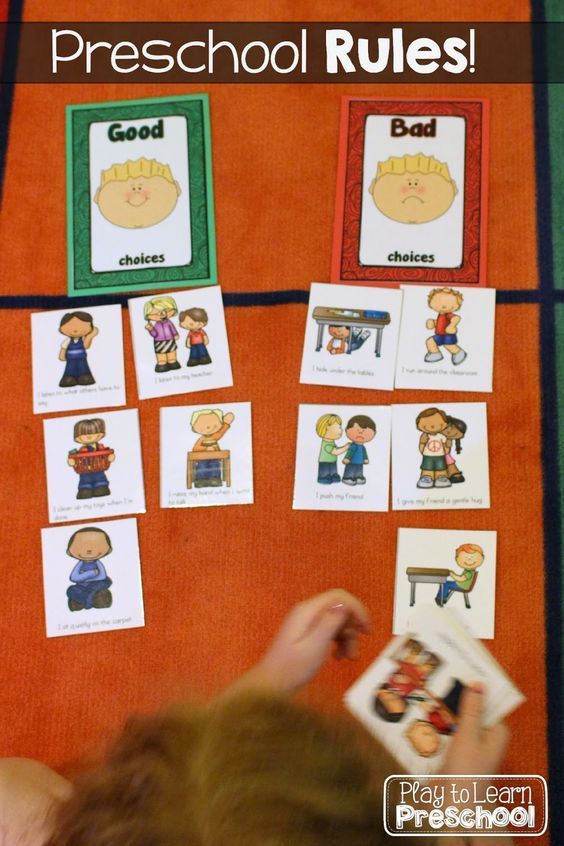 Being consistent in your reactions is important to avoid misunderstandings, as they cause stress and interfere with concentration.
Being consistent in your reactions is important to avoid misunderstandings, as they cause stress and interfere with concentration.
Patience: an absolute parental necessity, especially in this context. Give your child time to make good manners a habit. A positive attitude and support here will also not be superfluous.
Follow directions
This is important, not only because it will make your life much easier. Being able to follow the instructions is useful for the formation of the child's psyche. In school, this is a necessary skill for effective learning. Games are a great way to learn to grasp instructions and follow them. Alternatively, you can try these:
Simon speaks. Classic! One person gives the instruction “Touch the tip of the nose”, “jump on one foot” and the group follows it, but only on the condition that “Simon says” sounds first before the instruction. If someone completes the task without "Simon says", then he is out of the game.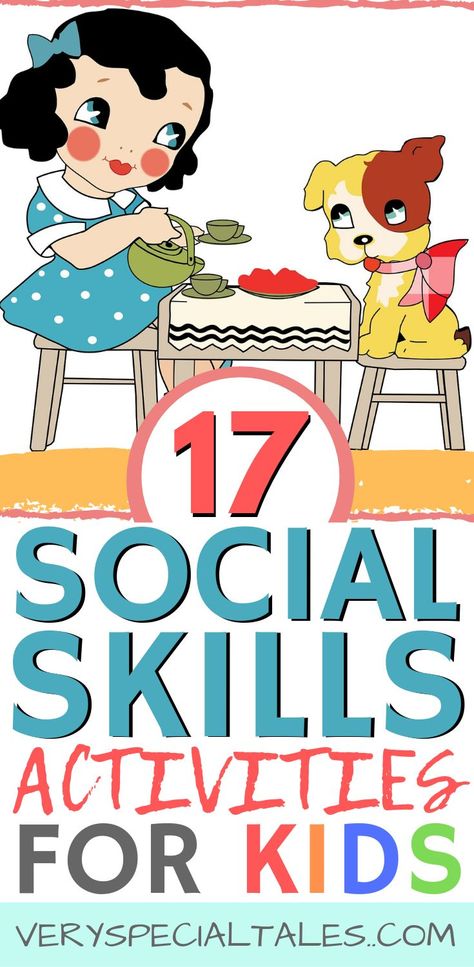
Red light, green light. First you need to line up. On the words "green light" - run to the finish line, "red light" - stop. If someone does not respond, then returns to the start. The first one to reach the finish line wins. You can complicate the game and add “blue light” by inventing another condition for it. For example, “blue light” means to jump.
Board game “Do it yourself!” Trains the skills to act according to the rules and gives space for creativity. You can take a board game template and come up with your own tasks for each move: “move two steps forward” or “count to ten”, etc. Then take the cube and go play!
Interaction with others
Being independent is important, but being able to work in a team is an equally necessary skill. Effective interaction with other people gives the ability to communicate constructively, resolve conflicts and a sense of belonging. Team sports will come in handy here, but there are other ways to teach teamwork at home.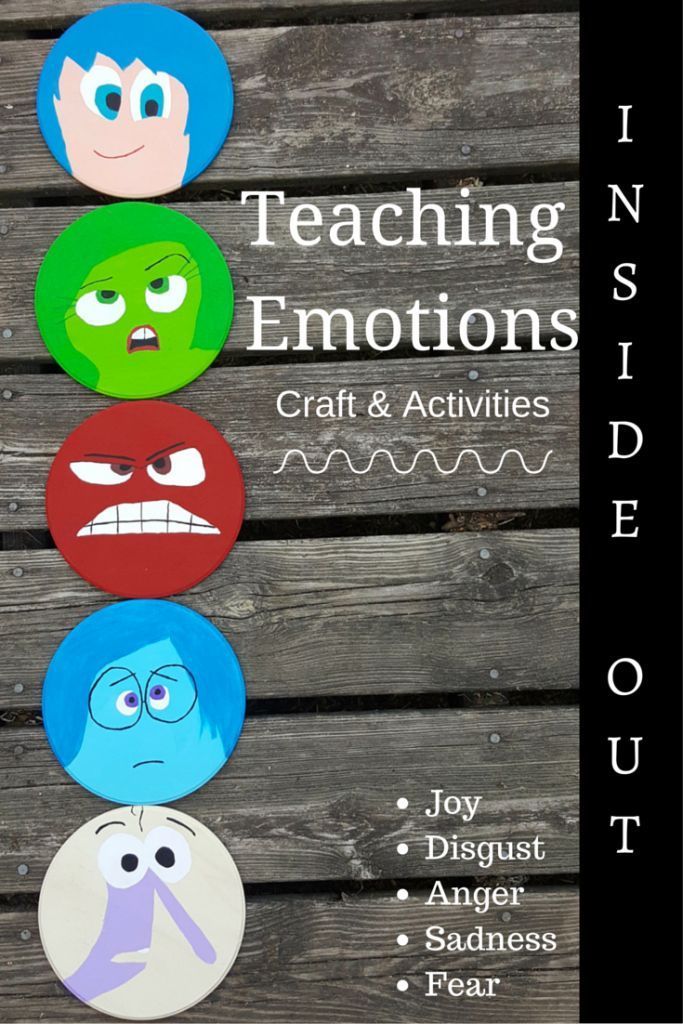 For example, you can take colored pompoms and ask the children to sort them by color. If you also include a timer, then the children can come up with a strategy and divide the work among themselves to speed up the process.
For example, you can take colored pompoms and ask the children to sort them by color. If you also include a timer, then the children can come up with a strategy and divide the work among themselves to speed up the process.
Another option is to have the task of building the tallest tower out of different materials to create a work of art together.
This also includes role-playing games like a seller and a buyer in a supermarket. Such games encourage children to discuss, adopt a strategy and share roles. You can keep an eye on the game so that in case of conflicts, gently guide them towards a peaceful resolution.
Listening skills
To teach children to listen is to teach them to be attentive. This is a necessary skill to build relationships with others. If you think your kids can't hear you, try this:
- call them by their first names to get their attention so they know they have something to hear;
- be at the same level with the child during the conversation: this way he will see you better and there will be no feeling that you are just shouting orders from above;
- make eye contact: this focuses the child's attention on you;
- be short and concise: too much information can overload and cause confusion;
- do not forget about praise.
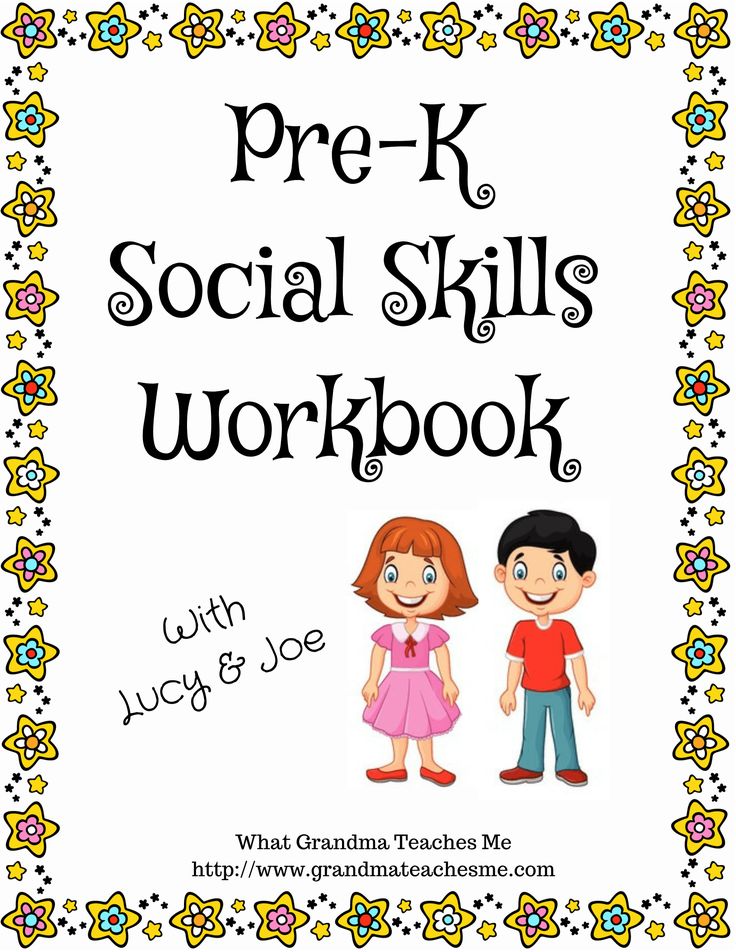 If your child did well, let him know!
If your child did well, let him know! - make sure the baby understands everything. If he can retell what you just said to him, then he heard you.
If the child did well, let him know! make sure the kid understands everything. If he can retell what you just said to him, then he heard you.
You will see that all the skills mentioned above overlap to some extent. All games teach how to interact with other people, follow the rules, make eye contact with the interlocutor, letting him know that he is being listened to and shown respect.
Developed social skills make it easier to make friends and adapt in a team. In the beginning, children interact only with relatives and close friends, but as they grow up, their social circle expands. They have to have to get along with people without parental involvement. Developed communication skills make it easier to make new acquaintances and maintain friendships, which in turn makes the child a more self-confident and happier person.